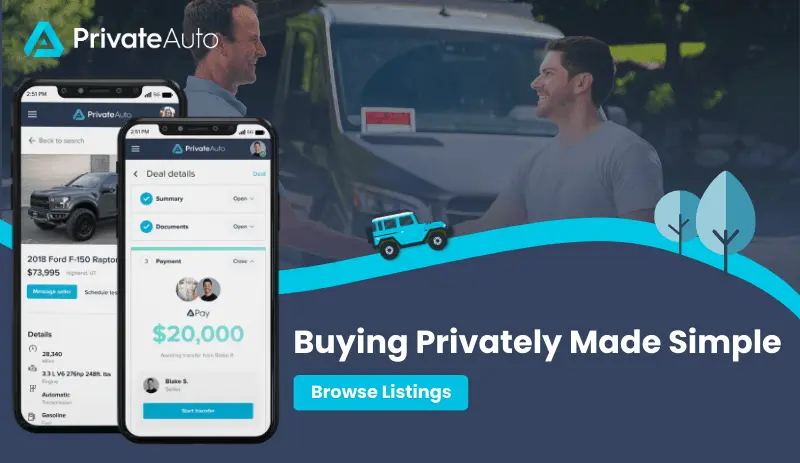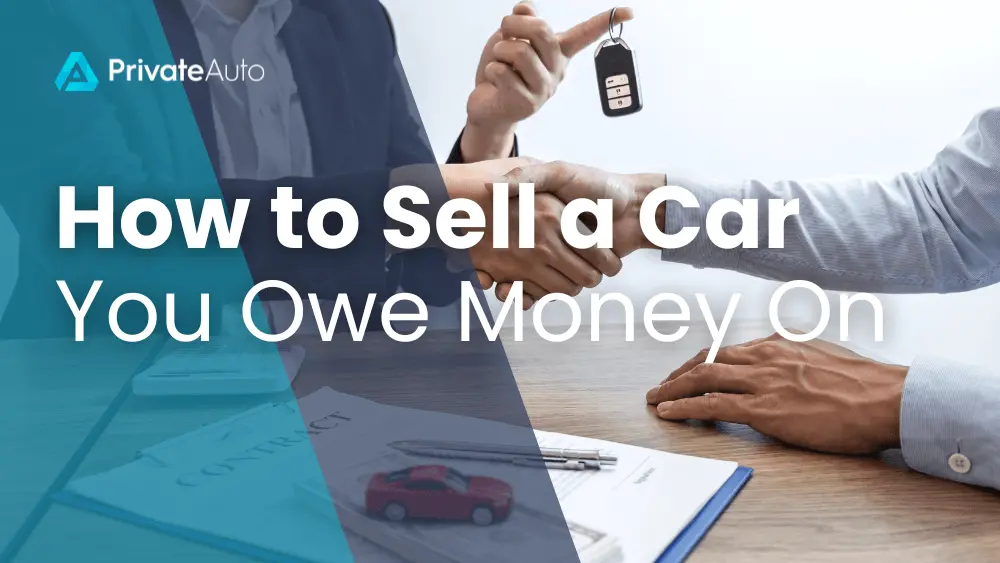Know Where You Stand
Know Where You Stand
If you owe money on your car, the first thing you need to sit down and figure out is how much you owe and how much the car is worth. If you owe more than your car is worth, that’s called being “upside-down” on the loan. It also means you have “negative” equity.
If you owe less than the car is worth, that means you’re in good standing and hold positive equity in the vehicle. That’s great news, because it makes selling the car and paying it off easier, as you might even be able to do it in one swift transaction — but more on that in a minute.
For drivers who currently have a loan for their vehicle, you should understand how that potentially complicates the process. In the simplest manner, your buyer needs the title to register the car, but you don’t have the title — your lender does. Your lender won’t give anyone the title until your loan is paid off. So, let’s look into how you can pay off your car and sell it.
If you owe less than the car is worth, that means you’re in good standing and hold positive equity in the vehicle. That’s great news, because it makes selling the car and paying it off easier, as you might even be able to do it in one swift transaction — but more on that in a minute.
For drivers who currently have a loan for their vehicle, you should understand how that potentially complicates the process. In the simplest manner, your buyer needs the title to register the car, but you don’t have the title — your lender does. Your lender won’t give anyone the title until your loan is paid off. So, let’s look into how you can pay off your car and sell it.

How to Sell a Car With a Loan on It
How to Sell a Car With a Loan on It
Pay Off Your Negative Equity
If you are upside-down on your car loan and you owe more than the vehicle is worth, the first thing you need to do is work to pay down the principle balance. Once you pay off the negative equity, the total payoff amount should be equal to or less than the car’s actual market value. This will allow you to work with a buyer to pay off the loan and transfer the title to them.
Alternatively, you can continue paying down the loan on your own, though paying off the car completely prior to selling it isn’t a financial option for most people.
Alternatively, you can continue paying down the loan on your own, though paying off the car completely prior to selling it isn’t a financial option for most people.
Contact Your Lender
Obtain a 10-day payoff quote from your lender. This will show you how much money you would need to send it to pay off the car loan. This quote is good for 10 days, so you should get one when you first list the car and another one when you sell the car, to inform the buyer of the payoff amount.
Some loans will have early payoff penalties, so it’s a good idea to ask your lender about any and all fees and penalties that may apply to your situation. Knowing this information will allow you to accurately calculate your potential profit.
Some loans will have early payoff penalties, so it’s a good idea to ask your lender about any and all fees and penalties that may apply to your situation. Knowing this information will allow you to accurately calculate your potential profit.
Advertise Your Situation
Don’t try to hide that you owe money on your car. Once you go to list your car, make sure you’re up front with potential buyers about the situation. Otherwise, you’ll just waste buyers’ time when they come and see the car only to find out they may not be able to register it right away.
Rightfully so, many buyers are weary when they learn that a seller owes money on a car. After all, it represents the risk of loss as they immediately begin thinking about lost time and the potential for lost money, should it turn out to be a scam.
You should be up front and understand the situation in full yourself before attempting to sell your car to anyone.
Rightfully so, many buyers are weary when they learn that a seller owes money on a car. After all, it represents the risk of loss as they immediately begin thinking about lost time and the potential for lost money, should it turn out to be a scam.
You should be up front and understand the situation in full yourself before attempting to sell your car to anyone.
Work With Your Car’s Buyer
Assuming that you don’t have the money lying around to pay off the loan yourself, you’ll need to work with the car’s buyer to pay off the loan and get the title transferred in a timely manner. Depending on who is buying the car and what they’re comfortable with, you have a few options.
First, they can give you the money and you can pay your lender. In the meantime, they won’t be able to drive the car because it isn’t registered in their name — and it can’t be, until the loan is paid off and the buyer has the title. This option is unfavorable to buyers as it represents great risk and waiting on their end.
The other more popular option is to have your buyer send payment directly to your lender. This gives them peace of mind knowing that their money is going to the right place, and they can even work with the lender to have the title sent directly to them, giving them further security and reassurance that it’s not a scam. Plus, it expedites the registration process as they won’t have to come back to you to get the title.
First, they can give you the money and you can pay your lender. In the meantime, they won’t be able to drive the car because it isn’t registered in their name — and it can’t be, until the loan is paid off and the buyer has the title. This option is unfavorable to buyers as it represents great risk and waiting on their end.
The other more popular option is to have your buyer send payment directly to your lender. This gives them peace of mind knowing that their money is going to the right place, and they can even work with the lender to have the title sent directly to them, giving them further security and reassurance that it’s not a scam. Plus, it expedites the registration process as they won’t have to come back to you to get the title.
Considerations to Keep In Mind
Considerations to Keep In Mind
You and your buyer might brainstorm on different ways you can both get a good deal. For instance, it’s common for buyers to request the keys as a type of reassurance that the car is actually theirs; however, this represents legal concerns.
Until the loan is paid off, the title remains with your lender and the car remains registered in your name. Therefore, anything that happens to the car or involving the car is your responsibility. The buyer won’t be able to register or insure the car until the title is in their hands.
Your best bet is to draw up a detailed bill of sale and fill out all the other paperwork to get the ball rolling and reassure the buyer that the deal is legitimate. You may even head to your local DMV to get both of your questions answered. Follow expert advice to keep the sale safe.
Until the loan is paid off, the title remains with your lender and the car remains registered in your name. Therefore, anything that happens to the car or involving the car is your responsibility. The buyer won’t be able to register or insure the car until the title is in their hands.
Your best bet is to draw up a detailed bill of sale and fill out all the other paperwork to get the ball rolling and reassure the buyer that the deal is legitimate. You may even head to your local DMV to get both of your questions answered. Follow expert advice to keep the sale safe.

Sell Your Car Faster
Sell Your Car Faster
Ready to sell your car? Paying off your loan and getting cash in your pocket is entirely possible if you find the right buyer. Here at PrivateAuto, we specialize in helping people just like you sell their cars quickly. With ready-to-sign state documents and other useful tools, we’ll help you sell your car faster. List your vehicle today.
